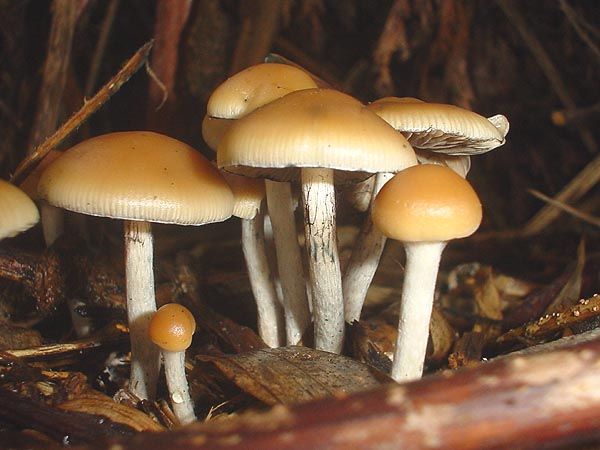Mushroom
What Are Psylocybin Magic Mushroom and How do they work?
What Are Psilocybin Magic Mushrooms and How Do They Work?
Psilocybin Magic Mushrooms: A Complete Guide
Magic mushrooms, also known as psilocybin mushrooms, are increasingly studied across the world. They are viewed as a gateway to understanding altered states of consciousness, potential therapeutic breakthroughs, and profound mental insights. In this guide, psilocybin mushrooms will be explained in detail, including how they work, their effects on the brain, and their role in modern science.
What Are Psilocybin Magic Mushrooms?
Psilocybin mushrooms are naturally occurring fungi that contain the psychoactive compound psilocybin. Once consumed, psilocybin is converted into psilocin by the body. As a result, perception, mood, and thinking can be profoundly altered, which is why these mushrooms are often linked with psychedelic experiences.
A Brief History
For thousands of years, these mushrooms were used in rituals and healing ceremonies by indigenous cultures. In particular, communities in Central and South America relied on them for spiritual practices. The Aztecs even referred to them as teonanácatl, or “God’s flesh.” Consequently, psilocybin mushrooms were highly revered as tools for connecting with the divine.
How Do Psilocybin Mushrooms Work?
When ingested, psilocybin becomes psilocin, which is bound to serotonin receptors in the brain, especially the 5-HT2A receptor. This interaction produces several key effects:
- Enhanced Brain Connectivity: Activity in the default mode network (DMN) is reduced. Therefore, communication between brain regions that usually remain unconnected becomes possible.
- Altered Perception: Users frequently report visual and auditory changes, including patterns, color shifts, and amplified sounds.
- Ego Dissolution: The sense of self is temporarily weakened, and this experience is often described as spiritual or unifying.
Benefits of Psilocybin Mushrooms
Mental Health and Therapy
Research on psilocybin has been conducted extensively, and the results are promising:
- Depression: Symptoms of treatment-resistant depression have been significantly reduced in clinical trials.
- Anxiety: Terminally ill patients, in particular, experienced less anxiety and greater peace of mind.
- PTSD: Traumatic memories may be reframed through psilocybin-assisted therapy.
Creativity and Problem-Solving
In addition, many users notice heightened creativity and new perspectives. As a result, psilocybin has been embraced by some for problem-solving and personal growth.
Spiritual and Personal Growth
Furthermore, psilocybin is strongly associated with mystical or spiritual experiences. Feelings of gratitude, interconnectedness, and deeper meaning in life are often reported.
Psilocybin and the Brain
The brain under psilocybin functions in unique ways. According to functional MRI studies, the following changes occur:
- Reduced DMN Activity: This supports the temporary dissolution of the ego.
- Increased Synaptic Plasticity: Stronger neural connections may be formed, which could benefit long-term emotional and cognitive health.
- Possible Neurogenesis: While still being researched, new neural pathways may be developed.
Therapeutic Uses in Modern Science
Modern studies continue to expand psilocybin’s therapeutic potential. In fact, it is being investigated for several uses:
- Addiction Treatment: Dependence on alcohol and nicotine has been reduced in controlled trials.
- End-of-Life Care: Patients facing terminal illness often find comfort through psilocybin-assisted therapy.
- Cluster Headaches: Although more research is needed, anecdotal evidence suggests that relief may be provided by psilocybin.
Safe Use Guidelines
If psilocybin mushrooms are considered, safety should always come first. Therefore, the following practices are strongly recommended:
- Set and Setting: Choose a calm, safe space and maintain a positive mindset.
- Dosage Awareness: Begin with small amounts before progressing.
- Trusted Guide: A sober sitter should be present to ensure safety.
- Legal Awareness: Since laws differ worldwide, it is essential to know the rules in your location.
The Future of Psilocybin Research
As global attitudes change, psilocybin mushrooms are moving into mainstream discussions. Consequently, more clinical trials, legalization initiatives, and public interest are emerging. If this trend continues, psilocybin may soon transform mental health care and expand into broader therapeutic use.
Conclusion
Psilocybin mushrooms are not only a part of ancient traditions but also a key focus of modern science. They offer insights into consciousness, provide potential healing for mental health challenges, and inspire spiritual growth. Therefore, these fungi are increasingly recognized as both a link to the past and a gateway to the future of medicine and self-discovery.
Frequently Asked Questions
What are psilocybin mushrooms used for?
They are used for therapy, research, and spiritual exploration.
How do psilocybin mushrooms affect the brain?
They reduce DMN activity and promote new neural connections, leading to shifts in perception and mood.
Are psilocybin mushrooms legal?
Laws vary globally. Some regions have decriminalized them, while others maintain strict prohibition.
What are the main benefits of psilocybin mushrooms?
They include relief from depression and anxiety, increased creativity, and support for overcoming addiction.
Can psilocybin mushrooms help with addiction?
Yes. Studies have shown that psilocybin may reduce dependence on substances such as nicotine and alcohol.

